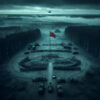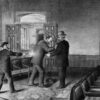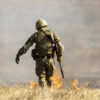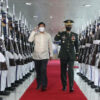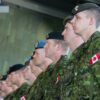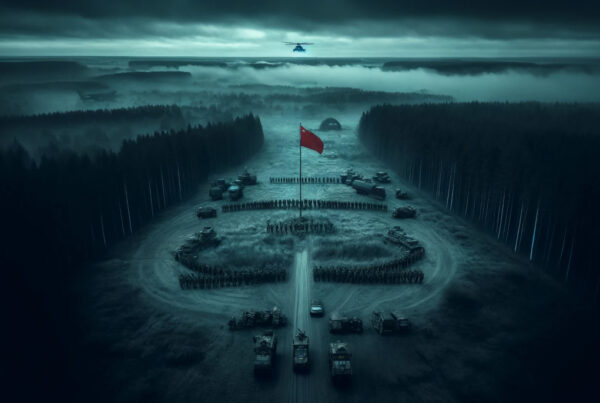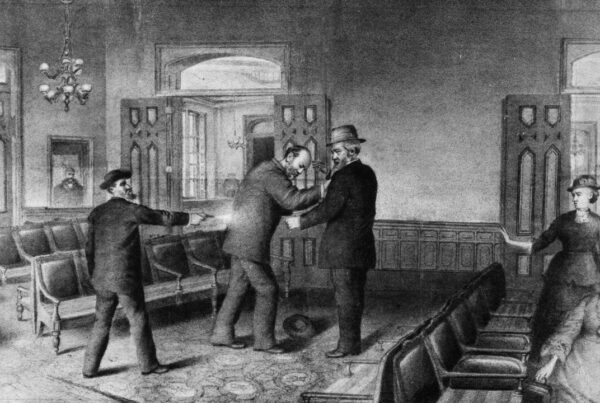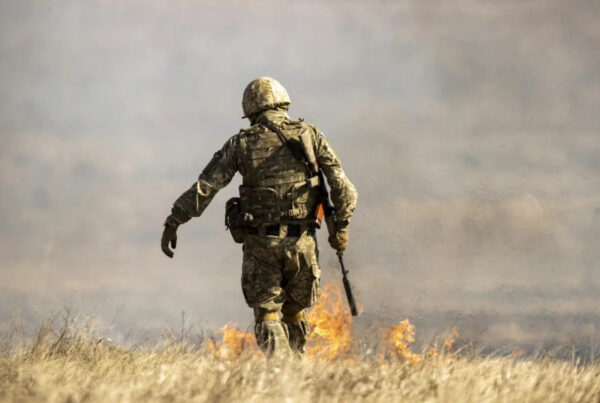The pursuit of Bin Laden was not yet concluded at the end of 2001; nor would it be completely safe to publish the obituary for the Al-Qaeda network; but events in Afghanistan have gone very nicely so far. This is so because the Western world displayed – as it almost invariably has for the last 2,500 years – some of its most fundamental characteristics when confronted by crisis. These characteristics include a massive economic, financial, and technological strength harnessed to political pluralism and an unmatched talent for battlefield lethality. The latest book by Victor Davis Hanson, Carnage and Culture, explains why this is so.
Carnage and Culture is a refutation of the primacy of geographical and environmental determinants of history advanced by Fernand Braudel (A History of Civilizations) or by Jared Diamond in Guns, Germs and Steel. While accepting that all human beings are born with similar raw capacities for courage, compassion or creativity, Hanson throws down a gauntlet in declaring that not all cultures are created equal. This is a point that has just been proved yet again in recent months.
Some of the most fundamental characteristics of Western culture are political resilience, technological superiority, raw economic power and a deadly talent for battlefield killing. Hanson points out that these were clearly evident when the Greeks confronted the Persians, and can be traced through Rome, and then on into Western Europe after Rome’s collapse — where these tendencies were weak but alive nonetheless. Thus, they were successfully transmitted to Medieval Europe and so down to us.
The basis for this clear political, financial, technological, productive and military superiority lies in an almost unique Western trait… we don’t hold with the idea of unchallengeable authorities and generally cherish the right to dissent (if not actually letting our dissenters always go unscathed). The cultivation of individuality, flexibility and an innovative spirit in every human endeavor gave the Greeks a decisive edge in their wars with Persia, and in every Western vs. Non-Western war since. These let us advance new ideas, experiment, exercise initiative, embrace success and discard failure more readily than other cultures do.
The net result outside of the military sphere is that Western Society is better able to provide for its members than other societies – except when they adopt Western practices. However, adopting the form of Western practices and institutions is only a second-rate solution. Western prosperity, resilience and potential really only come when fully embracing Western ways of thinking and behavior in every sense; thus in effect, becoming Western in form and content. This leads to the point that Western superiority is based on social and cultural institutions: Individual appearance or “race” has nothing to do with it.
Hanson points out that in almost every conflict between Western forces and those of non-Western cultures, the Westerners have soundly thrashed their battlefield opposition. In the battle of Cunaxa in 401 BC, 10,300 Greek hoplites destroyed one wing of the massive Persian Army, while having only one man injured by an arrow to the face (and Xenophon, who was at the battle, was probably not exaggerating). In the same part of the world, 2,390 years later, 40,000 Iraqi troops were killed in the six weeks of the 1991 Gulf War, while inflicting less than 200 fatalities on the Coalition that was liberating Kuwait.
The terrorism of September 11th in the US marks the first major attack by a Muslim culture inside the core of a Western state since the Turks besieged Vienna in 1683. One of the main motivations behind the terrorist attack was a hatred for the West, and the United States in particular, because of the strength and resilience of our culture – especially when compared to that of Islam, which is unsuccessfully struggling to keep up. The use of terrorism is also a reflection of the Islamic world’s basic inability to successfully confront Western power in any other sphere of activity over the past century.
The rapid destruction of the Taliban’s hold on Afghanistan and the attendant damage to the Al-Qaeda network is another testament to Western power. With no local base, the US and its Coalition partners were able to leverage their way into access to local airspace, and to mobilize local allies to act as ‘game-beaters’ for a potent combination of special forces and airpower. The Western willingness to use local allies is a salient feature of its war-making among other cultures – the British used Indian troops to control India; Cortez generated an anti-Aztec rebellion; and Julius Caesar raised a Legion of Gauls to complete his conquests.
Typically, Western troops have the most to dread when fighting each other – witness the incredible violence of our World Wars. It also says much when “friendly fire” killed more American troops in the first month in Afghanistan than the Taliban and Al-Qaeda ever managed to do.
Nor was the direct destruction wrought by Osama Bin Laden’s minions that decisive – excepting the thousands of personal tragedies caused by the attack. Many of the corporations and businesses that lost office space and records were able to reconstitute themselves within days of the destruction of the World Trade Center – showing the flexibility and resilience that is normally characteristic of military formations in a major war. The worst economic effect of the attack was a loss of confidence and the interruptions caused to air traffic. However, the long term economic damage wrought by the attack shows every sign of being swiftly overcome in the near future. Economically, what is a problem today will be a fiscal hiccup in a few years from now.
In recent decades it has been fashionable to denigrate Western cultural superiority and even to assume that all cultures are of equal worth. This multicultural construct of the New Left is based on the self-loathing that typifies its ideology. The direct slap in the face received on September 11th should put an end to this notion, but probably won’t. Our culture, that of the Western World (although imperfect), is superior to all others in its strength and ability to provide for human needs and we should not be ashamed to admit it. People are equal – in capability at birth – but their cultures are what let their capabilities be fully developed; and Western culture is demonstrably the best in the world at this.
However, the destruction of the architects of September’s terrorism will not spell an end to this crisis. It is very likely that the 21th Century will generate a Western vs. Islamic conflict of the kind Samuel Huntingdon feared in The Clash of Civilizations, and it may well be that a similar confrontation is brewing with China. As the decades unfold, one of the most vital strategic assets of the Western world will be its own sense of itself. It is time we rekindled a necessary degree of cultural chauvinism and use it to recognize our true worth and reinforce our real strengths.

